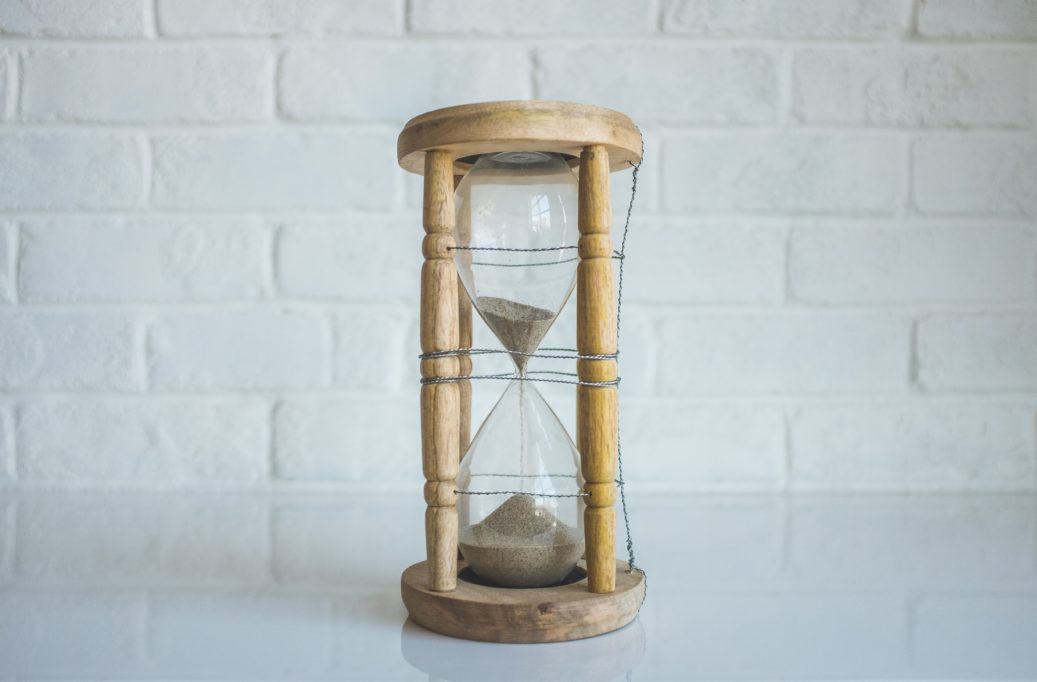About 20 years ago, I was surfing around the internet, bored to death, when I happened upon a website that offered to calculate my lifespan using the actuarial tables developed by life insurance companies. This website would do more than predict the date of my demise. It would also give me a countdown clock to install on my desktop—a Death Clock— to constantly remind me exactly how many days and hours I could expect to keep breathing.
Naturally, I was intrigued. Without thinking, I dutifully filled out a detailed questionnaire, entering my height, weight, gender, and date of birth into the required fields and answering a bunch of personal questions about my lifestyle, my parents and grandparents, and my medical history. (It never occurred to me to wonder who might be collecting the information I was surrendering so easily.) Then I pressed the button and held my breath.
A bell tolled, a date appeared, and the Death Clock announced that I would expire at the age of 72 years, 3 months, and 17 days. That was sooner than I expected, so I went back to the questionnaire and started changing my answers. After I had reduced my weight by 20 pounds, stopped drinking, switched to a plant-based diet, and started exercising 5 days a week, I pressed the button again. This time the Death Clock announced that I would live to the ripe old age of 93 years, 2 months, and 25 days! That felt too long, so I went back to the questionnaire again. I continued experimenting, adjusting my habits and negotiating with my vices until I had finessed my way to an expiration date somewhere in the low-to-mid-eighties, which seemed reasonable. Then, since mortality is too frightening to contemplate on a daily basis, I erased the Death Clock from my desktop and pushed its memory into my subconscious, from which it has surfaced only occasionally over the years.
I thought about the Death Clock today after learning via Facebook that yet another of my high school classmates passed away overnight, this one from cancer. Would the Death Clock have predicted her death? I doubt it. Connie was a joyous, energetic woman who tended goats and raised organic fruits and vegetables. When my wife and I visited Connie on her farm a couple years ago, she served us hummus and yogurt. And she was my age.
The more I think about the Death Clock, the more its lessons and limitations are coming into focus. Some realities are obvious but easy to ignore:
1. The Death Clock is unreliable.
While good genes and healthy habits can improve my chances of living longer, tomorrow is never guaranteed. My body can go haywire at any moment, and I live in a world where sudden tragedies happen all the time. I would be a fool to trust any comforting count of my remaining years.
2. The Death Clock is relentless.
Despite my ongoing efforts to slow the aging process, one thing is certain: the clock is always counting down. A quick look in the mirror confirms it. The profile picture I uploaded a few years ago is already out of date, and the changes aren’t exactly flattering. I am more than halfway down the waterslide, and there is no going back.
3. The Death Clock is universal.
I am not the only one who is getting older. My favorite stars from movies and television don’t look like themselves anymore, and scarcely a week passes without a familiar name on the obituary page. All of us are aging, and our time here is startlingly brief.
The very existence of the Death Clock raises a host of questions in my mind about the nature of time. Is time linear or cyclical? Is it absolute or relative? Is time merely a product of the human brain, our way of experiencing existence? Is it possible for anything to live outside of time?
I once heard a description that made some sense to me. Imagine that you and I are traveling in a caravan through a deep valley. Our parents and grandparents are ahead of us in this column, our children and grandchildren behind us. Lincoln and Luther and Moses and Adam are far ahead, out of sight. For us, the journey unfolds sequentially. We cannot experience what lies ahead until we get there. But on the rimrock high above us is an Observer who sees the entire caravan from beginning to end. For the Observer, everything is happening at once. Moreover, the Observer has the ability to enter the caravan at any point, to intervene at will.
As a Christian, I find this picture appealing. It fits my understanding of a God who is above and outside of time, who sees everything from beginning to end, who can step into history at any point. The idea that there is another dimension outside of time also helps to reduce my anxiety about dying, making it easier for me to entrust my future to someone who claimed to move between our world and a place he called “my father’s house.”
It isn’t necessary, however, for a person to believe in God or in the existence of an afterlife to benefit from the Death Clock. Its message is clear: our time on earth is limited. Life is an extremely precious commodity, and since our personal inventory of this treasure is constantly shrinking, each remaining day is more valuable than the last. If nothing else, the Death Clock reminds us to wake up, to pay attention to the moment, and not to waste today.
About


